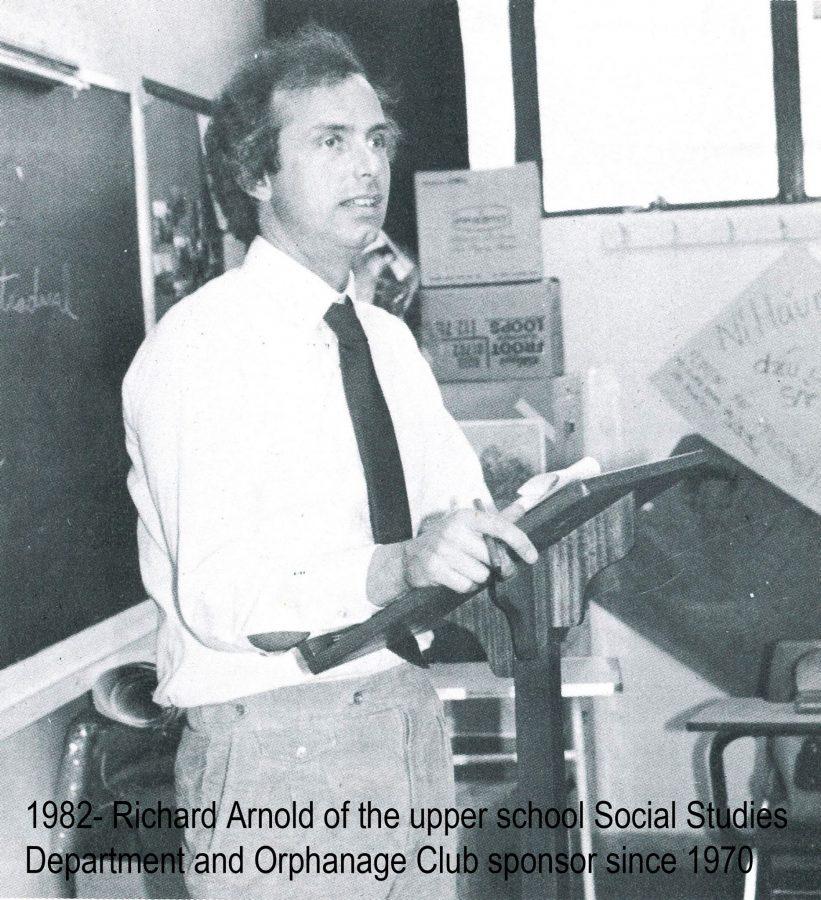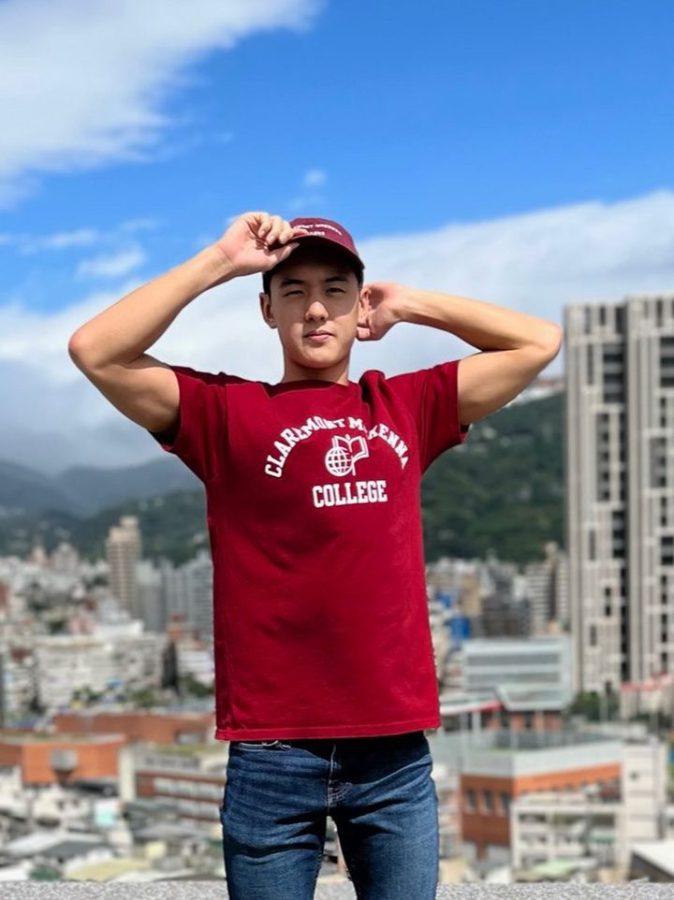Mr. Richard Arnold has been at TAS for 46 years.
He arrived for a one-year sabbatical in 1970, a contentious year for the United States. Citizens elected President Richard Nixon on his promise to end the Vietnam War, but while the war in Vietnam was winding down, US Army troops invaded eastern Cambodia, exacerbating the conflict. On May 4, 1970, the Ohio National Guard shot and killed anti-war protesters at Kent State University in Ohio, leading to nationwide protests across 450 college campuses.
“[The unrest across the US], plus the fact I was involved in helping black people get their rights,” he said, “and I was getting pretty radical.”
Thus, he decided to spend a year abroad. The funny thing is, his second choice was TAS–he wanted to go to Japan.
However, halfway through his first year at TAS, he knew he wanted to stay. He considered TAS a utopia–even in the midst of the harsh martial law in Taiwan.
“It was a tremendously heterogeneous campus, because there were U.S. Military students here,” he said, “…because the Vietnam War was going on.”
Mr. Arnold clearly likes the idea of different cultures blending. For many years, he taught the “Journey Into Asian Cultures” class. Mr. Arnold took students of the class, a mix of 10 different cultures, on field trips around Taiwan that gave the students opportunities to bond. The class was popular.
Students at TAS would express amazement at the wide variety of classes available years ago. “The classes were really exciting…we had Handwrought Jewelry and Jewelry Casting, we had Small Engines, we had a variety of home-making classes…we had fashion shows, because the students in the home economics had to make clothes.” Students also found the class on shorthand very useful.
Mrs. Brotherton, a home economics teacher, used to hold panel discussions on topics such as biracial marriages, which were relevant to people’s lives then.
Those are but a few of the curricular changes that previous TAS administrations have made prior to today.
Mr. Arnold also notes that student activities have changed a lot in the past 47 years. Taipei American School used to have a student court that heard cases involving students and teachers. One particular case has stuck by Mr. Arnold all those years. Towards the end of the 1970s, a boy with long hair made the baseball team. “The coach said, ‘You can’t be on the team if you have long hair,'” Mr. Arnold recalls. The court wrote the American Civil Liberties Union, asking if precedents existed for such a case. The court eventually ruled that the boy could play. In an ironic twist, the coach promptly quit on hearing the verdict, and the baseball season was over before it started.
Outside of TAS though, there existed a far harsher outside world. Taiwan was a highly conservative society and the military was still very much in charge. Out of school dances were strictly forbidden then; quite a change from today where students constantly complain about where the school hosts its dances. According to Mr. Arnold, Taiwanese local schools at the time required girls’ hair to be cut to ear length – people saw English-speaking Asian girls with long hair as bar girls.
The government did not just regulate students while in school; they also censored the mail. In particular, they did not allow any mention of Mao Zedong. Mr. Arnold recalls that his mother once tried to send him a coffee table book with some beautiful pictures of Mainland China. Officials at the Taiwan Defense Command informed him that they would not release the package to him. “They said it was dirty pictures. And so I said, ‘What?’ and they said ‘Playboy.’…I said, who sent it to me?…It was my mother, and so I said, ‘I don’t think my mother sent me Playboy pictures,'” he says in a sardonic, amused tone. The officials were going to throw it away, but Mr. Arnold, refused to give in, responding “you have to send the book back to America–since it’s not deliverable!”
Mr. Arnold admits that he ” was really nasty” to the officials. He knew the post office was a mile away, and so, instead of taking a cab, he decided to force the soldier accompanying him to walk with him. Once at the post office, Mr. Arnold flatly refused to fill out any papers, saying, “The sender’s not me, you didn’t give [the book] to me!” The book eventually did make it’s way back to the US, though to this day, it remains a mystery exactly how it happened.
Despite the rather harsh rules in place, Mr. Arnold loved how warm and friendly Taiwanese people are, and still gives back as the sponsor of Orphanage Club. He has been its sponsor since its inception, and continues to believe strongly in its mission.
Mr. Arnold was teaching when TAS implemented the AP, and later the IB program. He believes that a focus on grades has infringed on a student’s love of learning.
However, he stresses that TAS has always produced successful students, across a wide variety of career fields. That makes him very happy, and is, perhaps, why he has been here so long.
For more about Mr. Arnold, feel free to peruse Richard Vuylsteke’s Ties that Bind, an oral history of Taipei American School, available for purchase in the Tiger Shop.


![Members of Flourishing Love arrange bouquets together. [PHOTO COURTESY OF FLOURISHING LOVE]](https://blueandgoldonline.org/wp-content/uploads/2023/12/fl-1200x900.jpeg)
![Members of Formosa Charity reconstruct an old home. [PHOTO COURTESY OF CHAEWON B. (25)]](https://blueandgoldonline.org/wp-content/uploads/2023/12/bwb.jpeg)


![Catrina was waitlisted at Caltech but
intends to pursue Computer Engineering
at the University of Washington. [PHOTOS
COURTESY OF CATRINA Y.]](https://blueandgoldonline.org/wp-content/uploads/2023/05/Copy-of-IMG_4544-900x602.jpg)
![Honors Film 3 and 4 students set up the camera and microphone to get ready for an interview. [PHOTO COURTESY OF TAS FILM]](https://blueandgoldonline.org/wp-content/uploads/2023/05/DSC09834-900x507.jpg)